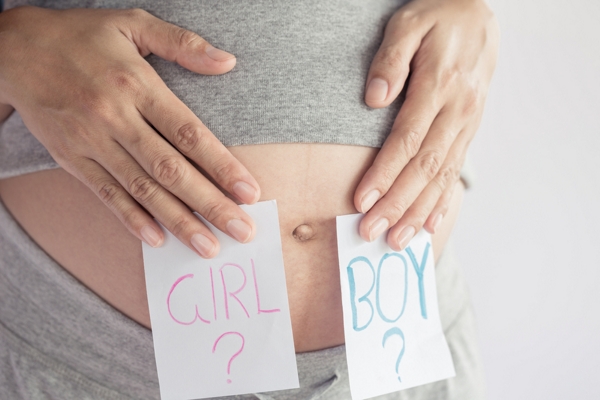what is IVF?
Thinking about overcoming infertility with in vitro fertilization (IVF)? Here’s how it works, plus everything you need to know about the IFV timeline, injections, side effects, and more.
About one in eight American couples struggle with infertility, or the inability to conceive despite having regular unprotected sex. As a solution, increasing numbers of people are turning to in vitro fertilization (IVF), a procedure in which surgically removed eggs are fertilized with sperm in a laboratory, then inserted directly into the uterus.
About 5% of all children born in the United States were conceived through IVF, says Amy Schutt, M.D., a reproductive endocrinologist at the Family Fertility Center at Texas Children’s Pavilion for Women. That equates to more than one million total babies. If you’re seeking to get pregnant through IVF, it’s important to understand the success rates, method, and possible side effects. Here’s all you need to know about IVF before signing up for the procedure.
Who Gets IVF Procedure?
Infertility has a wide range of causes in both women and men. Treatment usually involves correcting the underlying problem with medication or surgery. But sometimes conventional treatment proves difficult, and couples turn to assisted contraception methods like IVF instead. For example, women with fallopian tube blockage often opt for IVF; since the fertilized egg is inserted directly into the uterus during the procedure, the tubes aren’t necessary for conception. Similarly, IVF procedure is common if the man has a low sperm count (oligospermia) or a lack of sperm in the ejaculate (azoospermia).
- Not every woman suffering from infertility is a candidate for IVF. According to Dr. Schutt, patients should think twice about IVF if they have a premature ovarian failure or a serious medical problem that precludes pregnancy. Religious beliefs and financial constraints may also deter women from undergoing the procedure (the average cost of IVF is $12,000, plus an additional $3,000-5,000 for necessary medications). What’s more, women who don’t produce eggs – whether because of menopause or another condition – can’t undergo IVF unless they use a donor or frozen eggs, according to Dr. Timothy Hickman, the medical director of CCRM Houston and director of the Division of Reproductive Endocrinology and Infertility at Houston Methodist Hospital.
IVF Process: How is IVF done?
“IVF involves handling of both eggs and sperm within the laboratory to allow for the fertilization of eggs and early development of embryos,” says Dr. Schutt. To prepare for IVF, a woman takes injectable fertility medications for approximately 10 days, during which the growth of her eggs is closely monitored. “When the eggs are ready to be collected (about 14 days later), the woman takes one final HCG injection that assists in the maturation of the eggs – and 36 hours afterward, the eggs are collected from the ovary,” says Dr. Schutt. Doctors use a narrow needle, suction device, and ultrasound imaging to retrieve the eggs. This IVF process usually involves anesthesia or sedation to relieve pain.
Next, the embryologist places the collected eggs on a Petri dish. She combines the eggs with sperm taken from the male in a process called insemination. If the sperm has low motility (impaired movement) the embryologist may insert sperm directly into the eggs (ICSI). The fertilized eggs, or embryos, are stored for three to seven days. "If genetic testing (chromosomal defect screening that lets you see the sex of the embryo) is to be performed, then the embryo is biopsied between the fifth and seventh day of development," adds Dr. Schutt. Note that some clinics allow you to choose the sex during genetic testing, while others do not.
Finally, doctors transplant one or more embryos into the uterus with a catheter. Implantation – and subsequent pregnancy – usually takes place one or two weeks later.
IVF Success Rate
According to Dr. Schutt, the success rate of IVF depends largely on egg quality and quantity. “Egg quality is primarily a reflection of the age of the woman from which the eggs are obtained. The younger a woman is when she goes through IVF, the greater chance her eggs will potentially result in a healthy pregnancy,” she says. “Egg quantity is more variable, and it’s measured via ultrasound (to count the number of antral follicles) and lab work,” including blood tests. Other factors that affect IVF success include weight, alcohol intake, and tobacco use.
IVF Side Effects
Most women who undergo IVF don’t have any symptoms, but possible IVF side effects include:
- Cramping
- Bloating
- Breast tenderness
- Clear or bloody fluid, which comes from the vagina in small amounts
- Mood swings
- Constipation
Some women also experience side effects from the hormonal injections they take before IVF. These include headaches, abdominal pain, mood swings, bloating, hot flashes, and ovarian hyperstimulation syndrome (OHSS) – a rare condition that occurs from excess egg production. Symptoms are weight gain, abdominal pain and swelling, nausea, shortness of breath, and dizziness. Consult your doctor if you think you developed OHSS – or if you experience other worrisome side effects of IVF like heavy vaginal bleeding or excessive pain.






